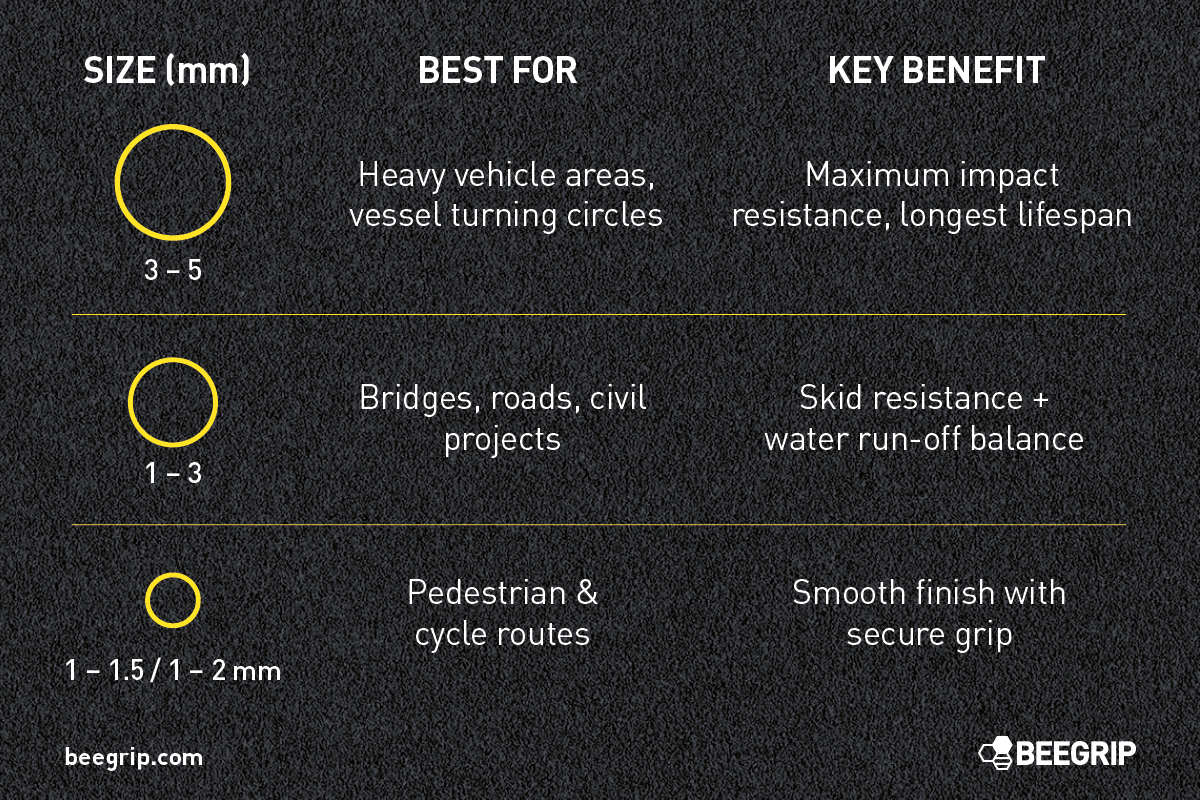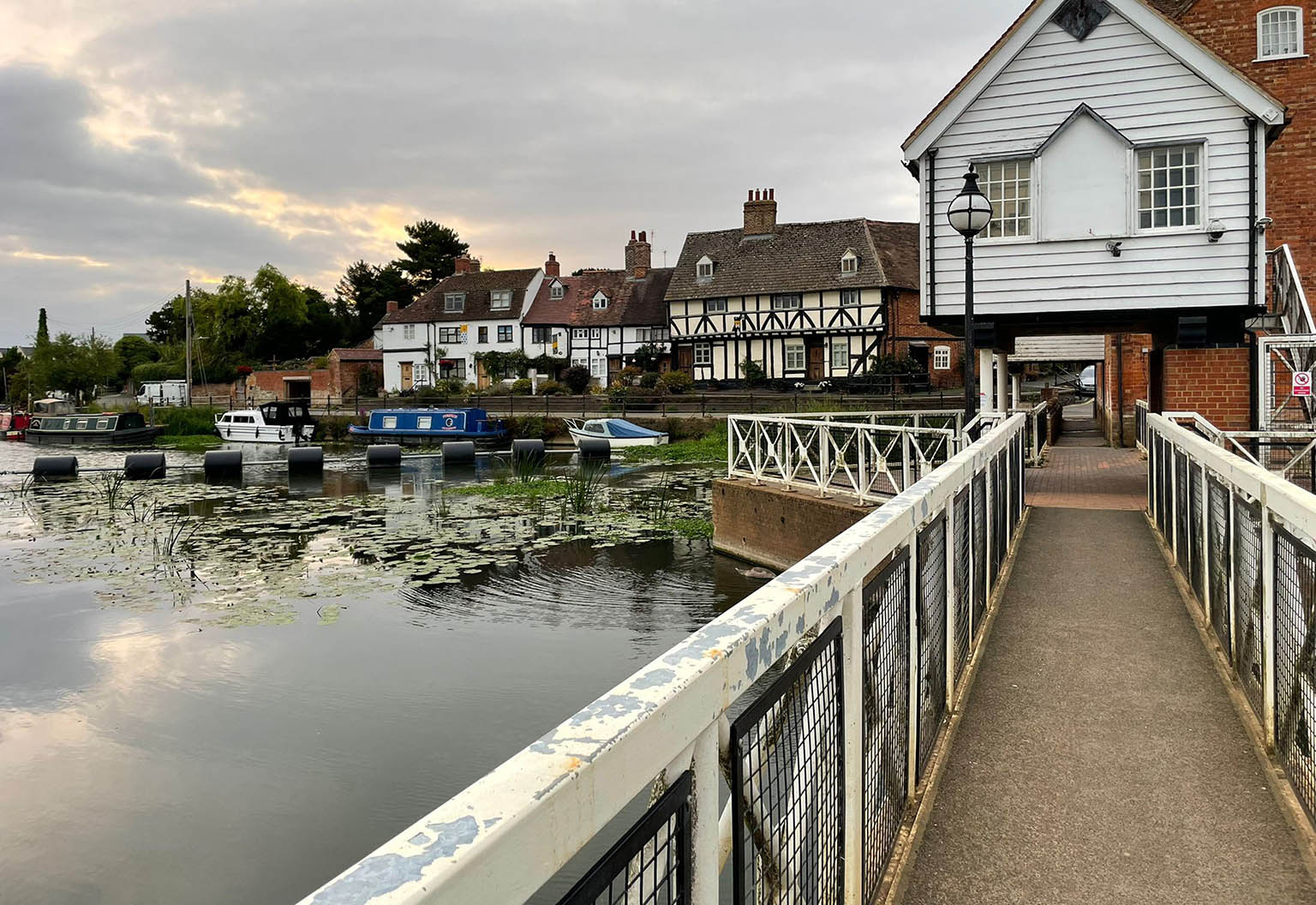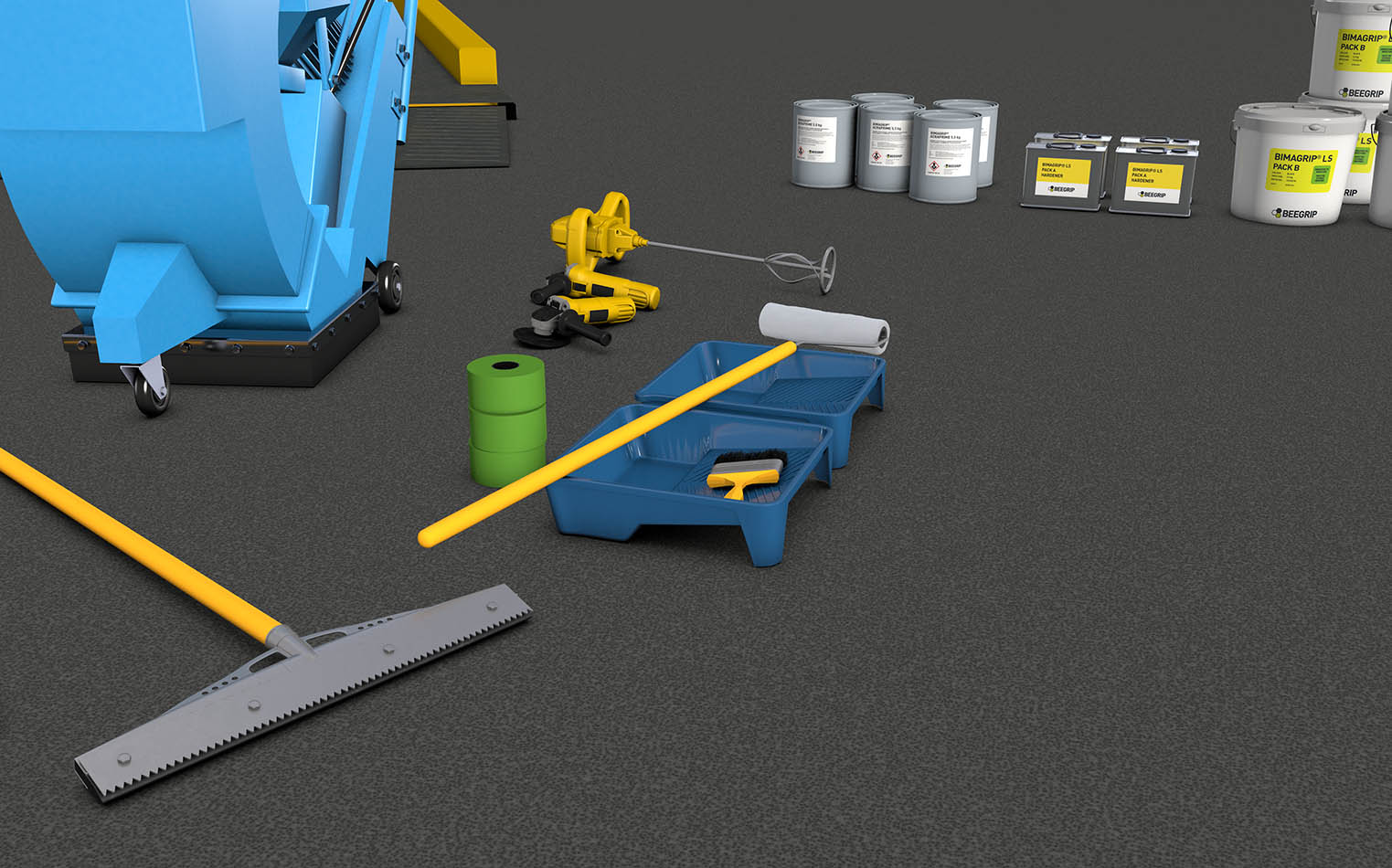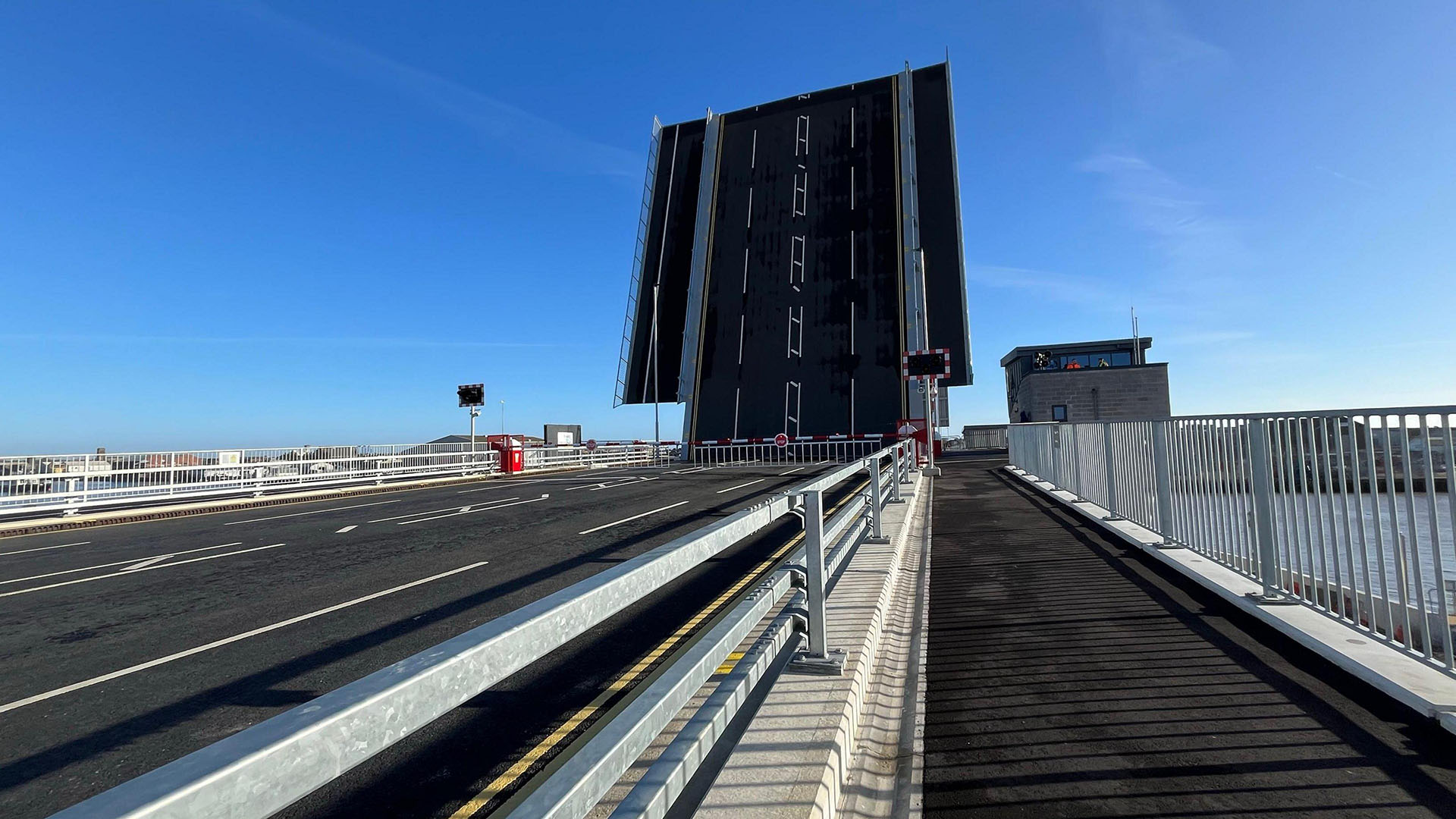
Choosing the right emery particle size for your BIMAGRIP® application

Why particle size matters
When selecting emery aggregate for a BIMAGRIP® system, particle size matters. Emery has a Mohs hardness of 9, which gives outstanding abrasion resistance and long-term durability. The question is: which stone size is best for your application?
Key considerations
Environment – Is the surface indoors, outdoors, exposed to weather, or subject to water run-off?
Usage – Will the area be used by pedestrians, cyclists, light vehicles, or heavy-duty traffic?
Recommended sizes
3–5 mm
Best for external areas subject to heavy vehicle traffic and high impact. Typical examples include turning circles on vessels or other locations where large forces are applied.
1–3 mm
Our standard choice for general external use, particularly on bridges, carriageways, and civil environments. Originally adopted for carriageway anti-skid surfacing, this grading provides an excellent balance of skid resistance (multiple points of tyre contact) and water-shedding to reduce aquaplaning.
1–1.5 mm or 1–2 mm
Often selected for pedestrian and cycle environments, where comfort, smoothness, and sufficient grip are all required.
Proven performance
Durability – We have installations where 1–3 mm emery has performed successfully for more than 10 years, including cycle bridges in Canada.
Wear response – From feedback, we know that 1–3 mm aggregate adapts well to natural wear and tear compared with finer grades (for example, as seen in the Nu Steel case study).
Impact resistance – 3–5 mm aggregate offers the longest lifespan under heavy stress conditions.
Final guidance
These are best-practice recommendations, not hard rules. Each project should be assessed based on its environment, traffic type, and performance expectations.
If in doubt, talk with us or your local distributor. We will help you compare options and make the choice that balances grip, durability, and cost-efficiency for your project.






.jpeg)








